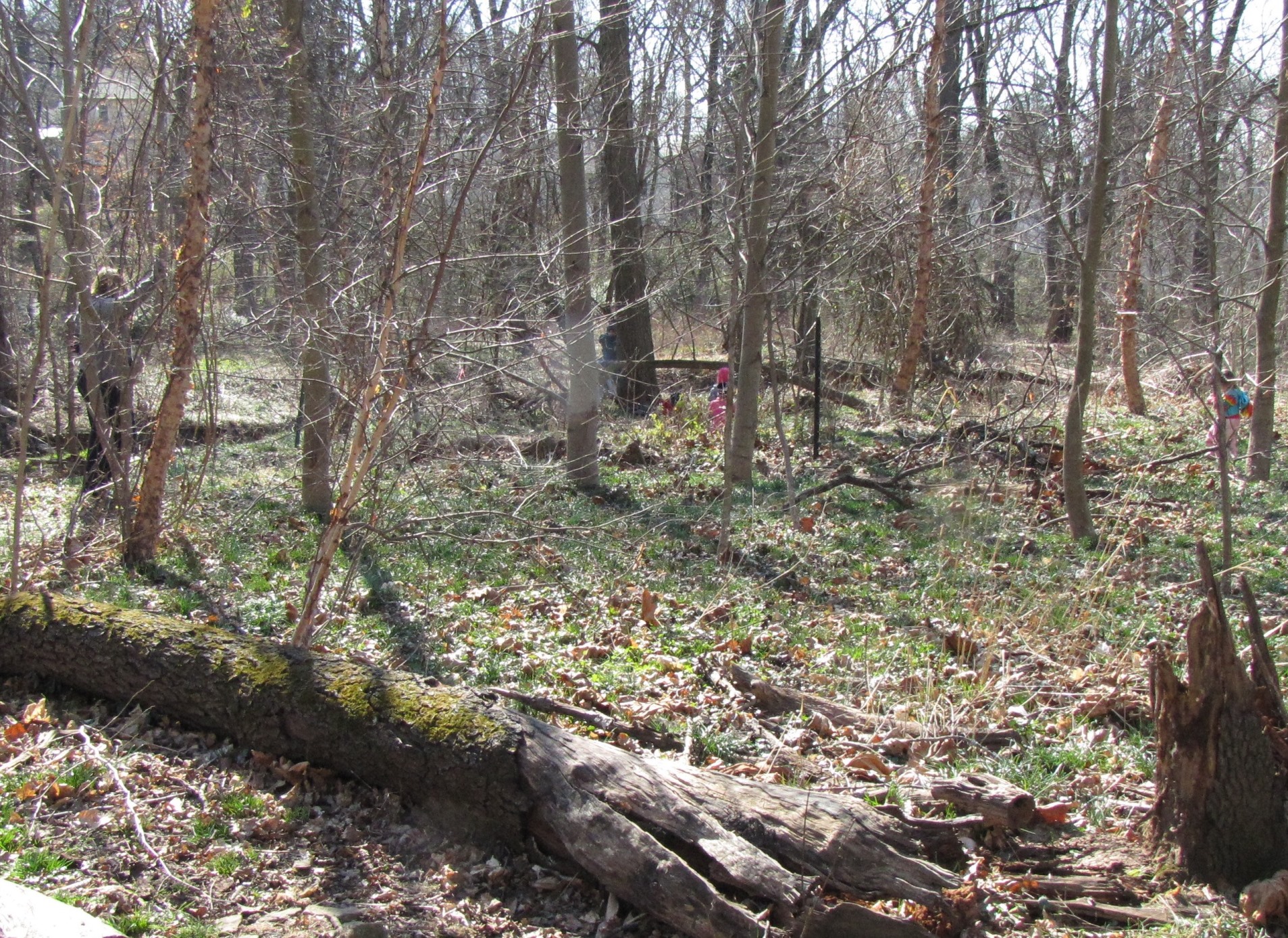
It’s Never Too Soon to Learn About the Outdoors
It is no secret that kids love the outdoors and that there are a multitude of benefits to spending time outdoors for us all. There are of course the physical health benefits associated with regular exercise and exposure to fresh air and sunshine, but also mental benefits, such as improved mood and reduced stress. Studies have shown that there are also academic benefits, that being outdoors increases our capacity to learn and pay attention and may result in increased confidence and self-esteem.
This isn’t news to environmental educators or to the founders of schools that promote spending time in nature and learning through doing, rather than sitting at a desk. In recent years, there has been an increase in the number of these schools (many cater to young children, starting as early as toddlers) that allow them to learn through experience. Here, kids are encouraged to explore the natural world around them and in the process gain confidence in their own abilities and a willingness and determination to face challenges.
While parents can certainly take their kids outside and teach them about nature themselves, some may be more comfortable leaving at least some of these lessons to trained professionals with a set curriculum. The Philadelphia area has a number of options, from one day sessions to multi-week classes. Many local nature centers offer programs for kids, frequently focusing on the seasons or local flora and fauna. The surrounding area offers a natural classroom and children’s programs are often hands-on, allowing them to safely explore the outdoors or when necessary, bring the outdoors in.
Another option that has appeared in the area is Tinkergarten, which pulls philosophies from the U.K- based Forest School as well as the Waldorf and Montessori programs. There is a set curriculum for each 8-week session that allows the flexibility needed to encourage children’s natural curiosity and to switch gears if they find a topic fascinating. The classes are run by a trained leader and are held completely outside, often in public parks.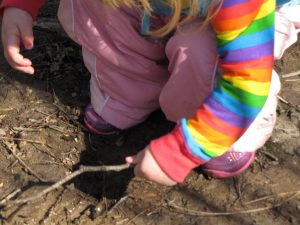
While observing a class session, the complete absence of “helicopter parents” as frequently seen in parks and playgrounds was notable. This group of pre-schoolers was free to play in the mud, climb on and around fallen trees and to fall down and pick themselves up. It’s clear that these children have confidence in their abilities. Not once did a child look to a parent for reassurance.
While most of the families in this particular class already appreciate the value of spending time outdoors, the program’s focus on community building makes it more fun than going it alone and increases the likelihood of getting outside, especially during the winter months. Nicole Skinner, a Tinkergarten leader in Ambler, PA said it helps encourage her to get out as well, admitting “It’s easy to convince myself to stay inside in the winter, but after class, I feel great.” She explained that the sessions are child-led, with the goal of coming together and playing outside. She acknowledged that this program is not like teaching other classes; you “have to be comfortable with a certain level of chaos.”
The sessions are progressive. Each lesson builds upon the one prior and focuses on developmental needs. One Tinkergarten class focuses on sounds. Activities involve making and listening to sounds. A number of items (a pot lid, a plastic jar) were hung on a rope strung between two trees with a variety of natural items, such as sticks or pine boughs found on the grounds, available to be found by the children to make noise. The children were also encouraged to make shakers from plastic eggs filled with their choice of natural materials (pebbles, acorns, pine needles, sunflower seeds) and to compare the different sounds.
Class began with a period of free time in which the children were free to explore the activities laid out or to explore the environment around them. During this time, one removed her shoes, preferring the feeling of stockinged feet, another headed for the creek from which he was reluctantly retrieved (muddy and happy) after sliding down the bank. The moms were attentive but relaxed, allowing the kids to discover on their own, fall down and pick themselves up again. Throughout the hour-long class, no voices were raised and no tears shed. There were no disagreements among the kids.
As an observer, it was interesting to see the interaction. The group sometimes split off, according to age and interest. Before circle time, two of the participants walked around the park, gathering sticks, they said “for their campfire.” The youngest members were content to wander about with their “guides” (parents or other caregivers), dropping pebbles in the creek or stomping in the mud. The older ones participated in the game and quieted down to “sneak up on their prey,” the “lion” and sat quietly on the bank to listen to the babble of the creek.
The children were called together with a charming song, naming various animals and their methods of locomotion. After getting their attention with a duck whistle, their leader asked them to lie down and cover their eyes for 10 seconds to listen to see what they could hear. It was suggested that they “zip their mouths and turn on their ears.” When asked what they heard, predictable toddler and pre-school answers followed: owl, bird, airplane, and of course, a lion. The lion became the animal of the day and the focus of a hide-and-seek type game played on a short hike while they each held a small cowbell. Class wound down with a snack and a story for the kids, in this case, Paul Showers’ The Listening Walk, and an explanation for the adults of what skills and concepts were taught and reinforced that day.
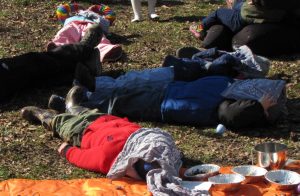
The lessons of the day were of course focused on listening. Since we are primarily a visual society, listening is a particular challenge. The point of having the bell during their seeking game was to hold the bell without it ringing, in order to work on self-control skills. Despite the lack of walls or seemingly even rules, as the class concluded, the children and parents gathered their things and helped clean up before going on their way. The day would convince even skeptics of the value of “organized chaos” and the calming influence of time spent in nature.



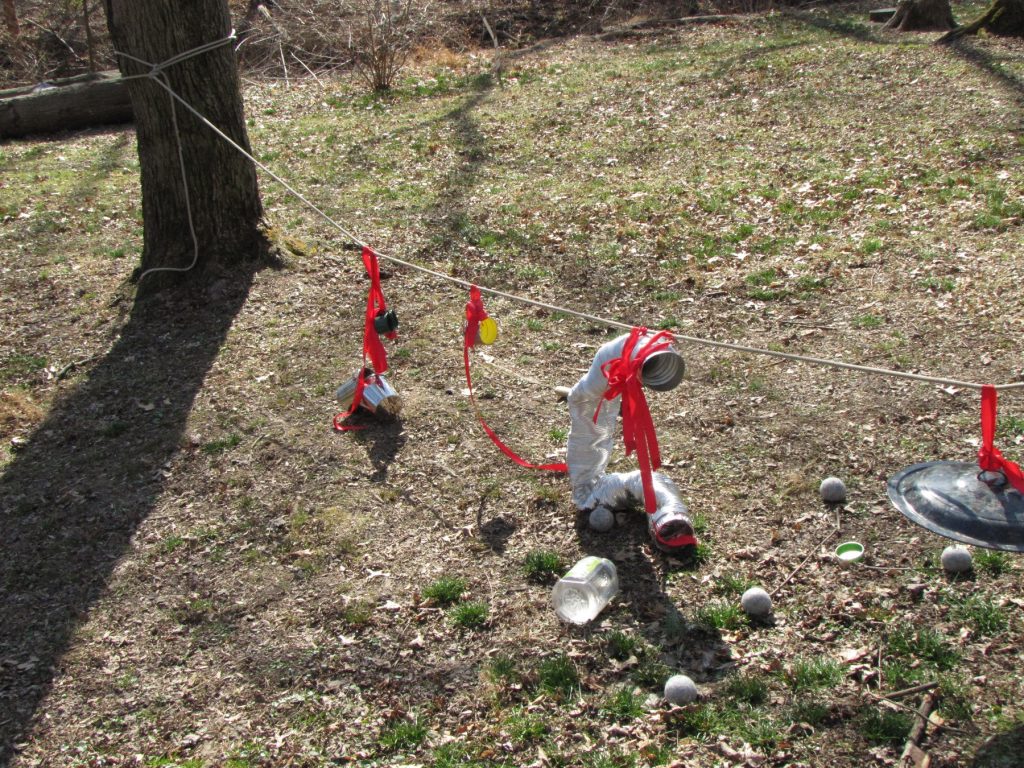
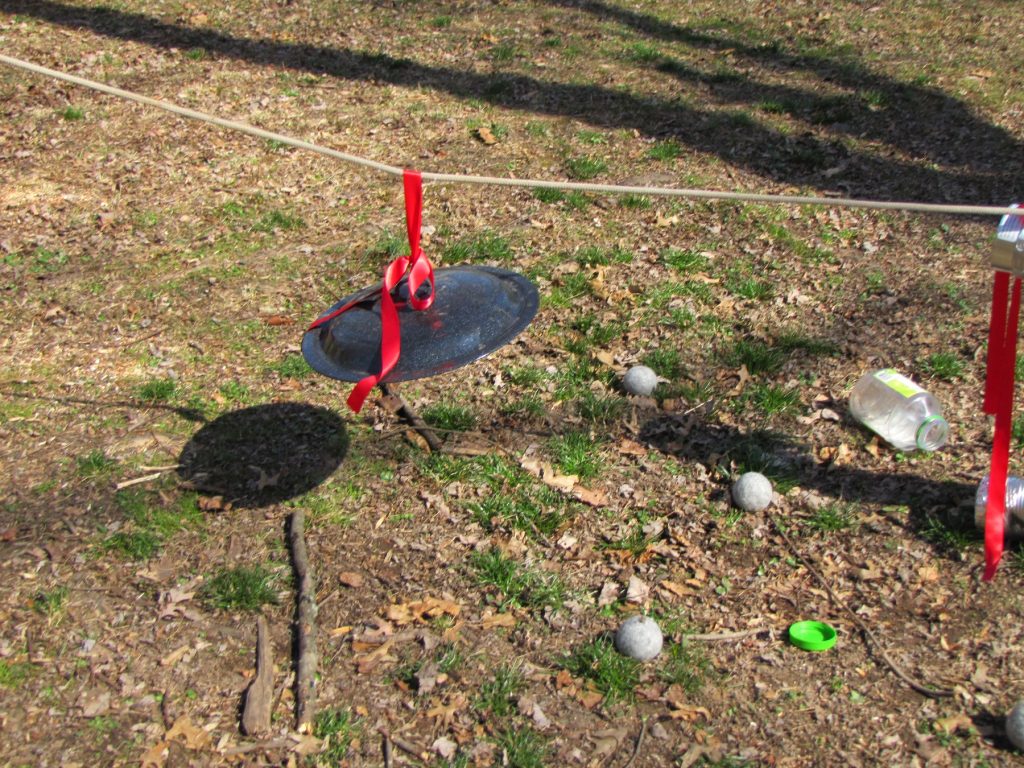
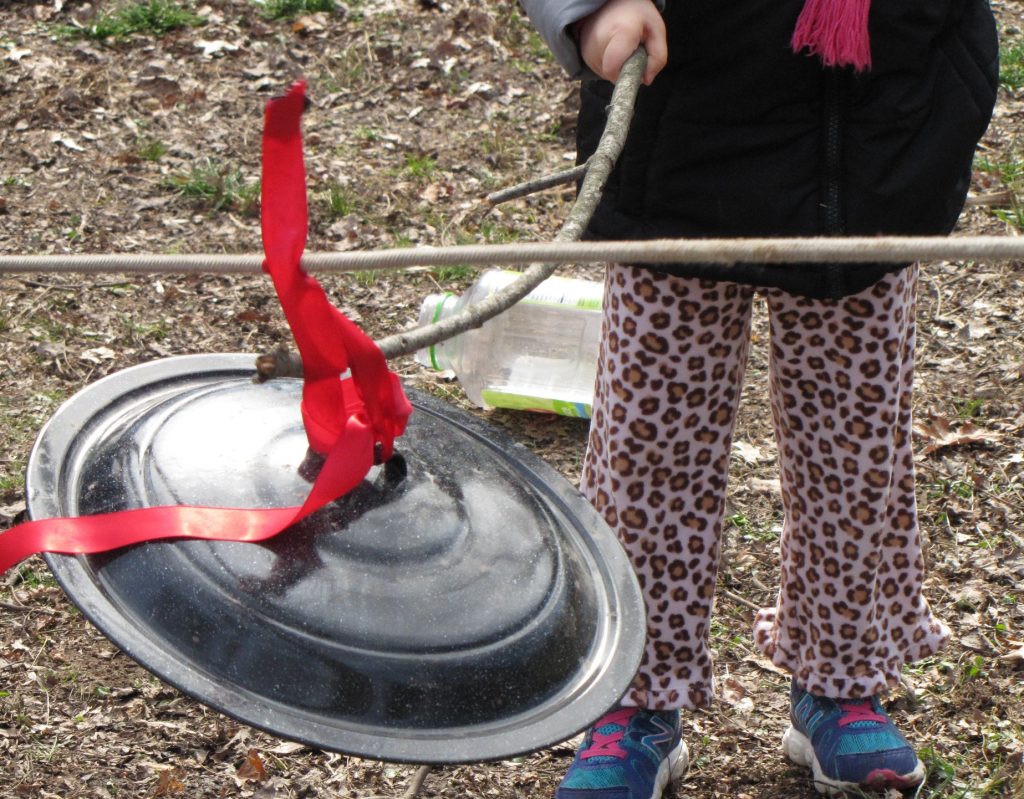



4 Comments
Rebecca
My kids’ preschool summer camp is entirely outdoors this year based on the success of a few trial runs last year. The whole family’s looking forward to it!
Kimberly Yavorski
That’s exciting. Hopefully more will follow their lead.
Pingback:
Pingback: